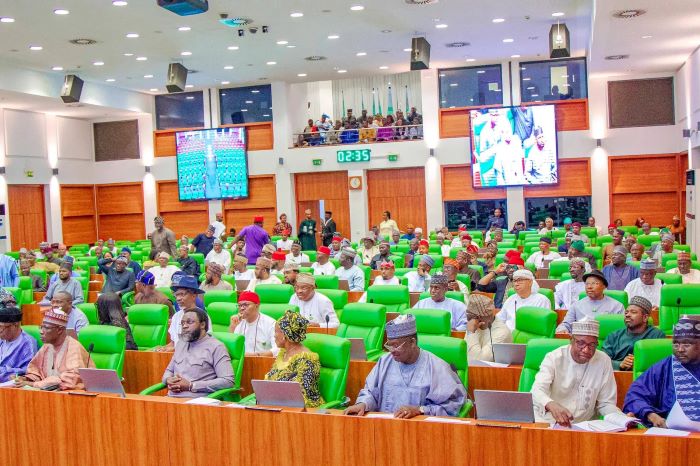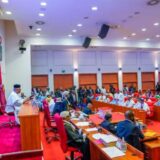Reps Reject Rotational Presidency Bill, Citing Risks to National Unity and Leadership Quality
Abuja, May 13, 2025 – The Nigerian House of Representatives on Tuesday rejected a constitutional amendment bill that sought to mandate the rotation of the offices of the President and Vice President among the country’s six geopolitical zones. The bill, sponsored by Deputy Speaker Benjamin Okezie Kalu, was among seven constitutional alteration proposals considered during a plenary session but was decisively voted down following intense debate.
Key Points of the Debate
The rotational presidency bill aimed to enshrine in the constitution a formal rotation system among the North Central, North East, North West, South East, South South, and South West zones, ensuring each region a turn at the presidency and vice presidency.
However, opposition to the bill was strong. Deputy Minority Leader Aliyu Madaki argued that the principle of equitable representation is already covered by the Federal Character Commission and that political parties have internal mechanisms to ensure fairness. He cautioned against constitutionalizing rotation, stating, “Everybody should be given the chance to stand and contest an election at any given opportunity.”
Sada Soli (APC, Katsina) criticized the bill as “disingenuous,” warning that institutionalizing rotation could compromise leadership quality and exacerbate ethnic and regional rivalries. Similarly, Bello Mohammed El-Rufai (APC, Kaduna) cautioned that the amendment could infringe on citizens’ constitutional rights and deepen divisions in Nigeria’s diverse society.
Opponents also raised concerns about the practical challenges of rotation, with Shina Peller Oyedeji (PDP, Oyo) noting that zoning could spark further agitations within regions over which state or ethnic group should produce the president.
Support and Alternative Views
Minority Whip Ali Isa supported the principle of rotation, emphasizing fairness and the need for all geopolitical zones to have a chance at national leadership. He suggested extending the principle to state-level offices, including governorships.
Clement Jimbo (APC, Akwa Ibom) echoed calls for fairness, proposing a sunset clause to end the rotation principle once all zones have had their turn.
Outcome and Next Steps
After a voice vote presided over by Deputy Speaker Kalu, the majority of lawmakers rejected the bill. The House also voted down six other constitutional amendment bills, including one seeking to transfer the power to register political parties from INEC to the Registrar-General of Political Parties.
The House resolved to reconsider the bills individually during Wednesday’s sitting, allowing for more detailed debate on each proposal’s merits.
Context
Currently, Nigeria does not have a constitutional provision mandating rotational presidency. The principle of zoning has traditionally been an informal political arrangement aimed at promoting inclusivity and national cohesion. The rejection of the bill underscores lawmakers’ concerns about formalizing such arrangements in the constitution, fearing it may undermine democratic competition and fuel regional tensions.

















